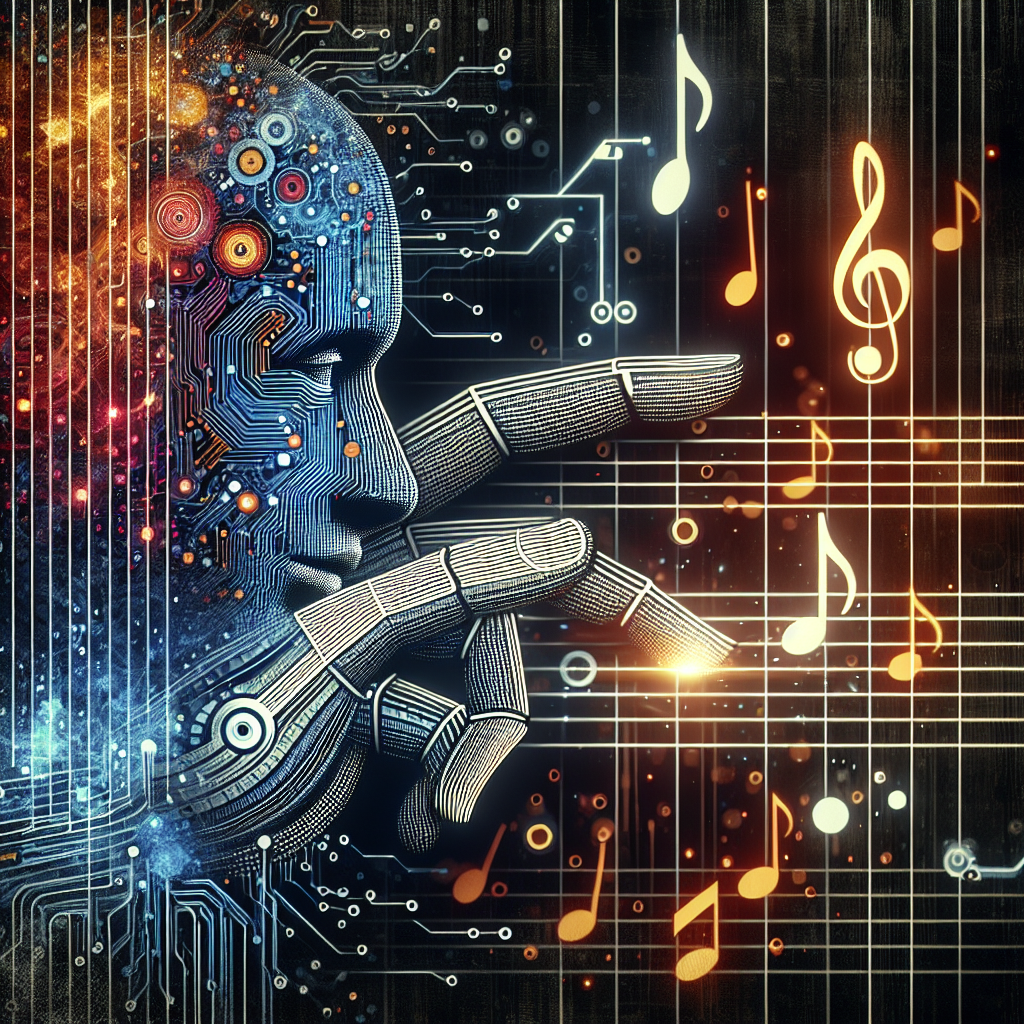Artificial intelligence (AI) has been making waves in various industries, and the music industry is no exception. Over the past few years, AI has been increasingly used to help musicians and composers create music in new and innovative ways. From generating melodies and harmonies to helping with the production process, AI is blurring the lines between man and machine when it comes to music collaboration.
One of the most significant contributions of AI to music collaboration is its ability to generate musical ideas. With the help of machine learning algorithms, AI can analyze vast amounts of musical data and generate new melodies, harmonies, and rhythms. This can be particularly useful for musicians who may be experiencing writer’s block or looking for fresh ideas to incorporate into their compositions.
AI can also assist in the production process by helping to mix and master tracks. By analyzing the characteristics of a song, AI can suggest adjustments to the levels of different instruments, the placement of effects, and other aspects of the mix to create a more polished and professional sound.
In addition to creating and producing music, AI can also help with the distribution and promotion of music. AI algorithms can analyze data on listener preferences and behaviors to help musicians target their music to the right audience. This can result in more effective marketing strategies and increased visibility for the artist.
One of the most well-known examples of AI in music collaboration is the AI-generated album “Hello World” by the music duo SKYGGE. In this project, the AI algorithm created the melodies and harmonies for the songs, which were then arranged and performed by human musicians. The result is a unique blend of man and machine, with the AI contributing its own creative input to the music-making process.
Another example of AI in music collaboration is the AI-generated music platform Amper Music. This platform allows musicians to create custom music tracks using AI algorithms that analyze the user’s input and generate music based on their preferences. This can be a valuable tool for musicians looking to quickly create high-quality music for projects such as commercials, films, and video games.
Despite the many benefits of AI in music collaboration, there are also some concerns and challenges that come with the integration of AI into the music-making process. One of the main concerns is the fear that AI will replace human musicians and composers, leading to a loss of creativity and originality in the music industry. While AI can certainly assist in the creative process, it is unlikely to completely replace the human element of music-making, as the emotional and intuitive aspects of music creation are difficult to replicate with AI algorithms.
Another challenge with AI in music collaboration is the potential for bias in the algorithms used to generate music. If the training data used to develop the AI algorithms is not diverse and inclusive, the music generated by the AI may reflect these biases, leading to a lack of diversity and representation in the music industry. It is essential for developers and musicians to be aware of these biases and work towards creating more inclusive and equitable AI systems.
Despite these challenges, AI has the potential to revolutionize the music industry and open up new possibilities for collaboration between man and machine. As AI technology continues to advance, we can expect to see even more innovative and creative uses of AI in music-making, pushing the boundaries of what is possible in music creation.
FAQs:
Q: Will AI replace human musicians and composers?
A: While AI can assist in the music-making process, it is unlikely to completely replace human musicians and composers. The emotional and intuitive aspects of music creation are difficult to replicate with AI algorithms, and human creativity will always be an essential part of the music industry.
Q: How can AI help musicians and composers create music?
A: AI can help musicians and composers create music by generating melodies, harmonies, and rhythms, assisting with the production process, and analyzing data to help with distribution and promotion. AI can provide new ideas and insights for musicians looking to enhance their creative process.
Q: What are the potential challenges of using AI in music collaboration?
A: Some potential challenges of using AI in music collaboration include the fear of AI replacing human musicians, biases in the algorithms used to generate music, and concerns about the loss of creativity and originality in the music industry. It is essential for developers and musicians to be aware of these challenges and work towards creating more inclusive and equitable AI systems.
Q: What are some examples of AI in music collaboration?
A: Some examples of AI in music collaboration include the AI-generated album “Hello World” by SKYGGE, the AI-generated music platform Amper Music, and AI algorithms that assist with mixing, mastering, and distribution of music. These examples demonstrate the potential of AI to revolutionize the music industry and open up new possibilities for collaboration between man and machine.

